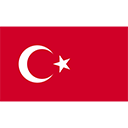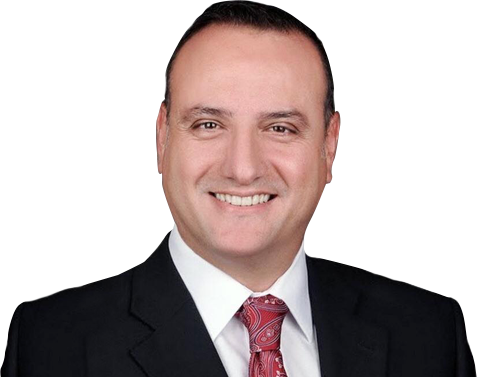Life After Sleeve Gastrectomy
Your stomach is shaped like a tube or banana by sleeve gastrectomy. Your meal portions reduce. Your feeling of hunger is suppressed. These facilitate to loose weight and helps to preserve weight loss.
You should use the advantages that new stomach provides you to be benefited ultimately after sleeve gastrectomy. You should make effort to preserve this wellness status.
Do not forget that Sleeve Gastrectomy is the most comfortable obesity surgery operation that you may have. The cause for that is protection of pylorus muscle, preserving long discharge channel of the stomach without removal and “dumping syndrome” which is very common after gastric bypass operations. The most important cause for not appearance of dumping syndrome after sleeve gastrectomy operation is the preserved pylorus muscle which exists on the stomach exit and prevents bile leaks.
The gastric tube created by sleeve gastrectomy actually restricts solid foods. You understand that you will not experience a trouble to intake liquid foods within a couple of hours after the surgery. When you pass gas by walking, you start to consume liquid foods without grains.
As the liquids are tolerated well, high calorie liquids should be avoided after sleeve gastrectomy. Sleeve Gastrectomy aims to restrict solid food. There is no alteration in absorption of calories. The consumed food is fully absorbed. Therefore, you should not eat fatty and creamy drinks with high calories.
- Even though your stomach is reduced, you can not loose weight if you eat high calorie foods that are rich in starch and fatty content. Weight regain may be observed in excessive calorie intake as well. If you have an addiction towards high calorie foods, sleeve gastrectomy may not be a right choice for you. You should consider duodenal switch surgery if you are a seet eater super obese.
Nutrition After Sleeve Gastrectomy
Sleeve Gasterctomy does not allow to have solid foods comfortably for first days. Its recommended to take liquids without grains for first 2 to 4 weeks. Some patients may eat smashed vegetable meals or sorbets after the first week. It will not be hard to intake fluids. However, some tips and conveniences should be remembered while consuming water or similar food.
Accurate and Healthy Nutrition
- Drink low calorie and sugar free drinks.
- Do not drink carbohydrate rich, creamy coffees and drinks. They cause weight gain because they have high calories.
- Prefer decaf coffees. Caffeine may increase water loss.
Solid-Liquid Seperation:
- Liquids taken with meal causes fast passage of foods from gastric tube. This causes diarrhea and nausea-vomiting.
- Start to drink water at least 25 to 30 minutes after the meal.
Eat slow, Chew long:
- Extend your meal time to thirty minutes at least. This may be prolonged to one hour sometimes.
- Fast eating may cause bloating, tension and pain.
- Take small bites and chew long. Softer and more mashed bites going to your stomach means more comfortable digestion.
- The easiest way to eat slowly is to try to differentiate different tastes in each bite that you eat by your tongue and palate.
Take eating serious:
- Eating must be a joy and happiness entirely for you. Enjoy this happiness and do not pass over.
- Determine a place in your house to eat your meals. Kitchen or living room may be suitable.
- Do not walk while there is something in your mouth. Do not gorge while walking. Eat your meal by sitting your usual spot.
- Just eat while eating. Do not eat when you watch TV or at computer.
What makes you happy except eating?
- If you addict to eating when you get bored or upset, create another areas of interest. Any kind of social hobby may work.
- Determine 10 activities that you enjoy except eating and write these down somewhere.
- Record what you eat.
- To note what you eat gives a clear idea about your daily consumption.
- To note your feelings during eating will be useful as well.
Take meals away from visible sites
- Keep snacks, cookies and crick-cracks in the closet.
- Remember that “Out of sight, out of mind”.
- Do not bring meal pot onto the table while serving the meal. Keep it on the stove.
- Try to eat salads first. Leave main dish later.
- Use smaller service plates and bowls.
Things To Keep in Mind
- Stay away from little snacks. The eating style that you call snack causes weight gain event it includes high or low calories. Regular eating habit is very important.
- Be aware that why you desire to eat. If you addict to eat in case of getting bored, excited, depression or extreme happiness, a psychologist support may be useful.
- Your eating choice should be healthy. To preserve weight loss as well as weight loss are related with healthy and balanced diet. Get support from your dietician about choosing and using healthy foods.
- Special days. Holidays, birth days or celebrations, travels may be an obstacle to properly keep up with the diet. The reason for that is the difficulty to access to proper foods for your diet. You may not find healthy meals with fiber, low calorie just you want in these cases. To reduce portions may be useful at least.
- Exercise. To provide body weight balance depends on the balance between calories taken and consumed. To make a diet solely is difficult and you can not obtain sufficient weight loss. In fact, exercise with diet increase your weight loss quantity and provide to preserve weights you loose.
- Vitamins and Minerals. Sleeve gasterctomy is not a absorption restricting operation. However, you will need support for vitamins and minerals because quantity of meals will decrease. You will need to take vitamin pills and calcium tablets daily after the operation.
Cases Met Frequently After Sleeve Gastrectomy and Suggestions
Constipation
- Drink much water.
- Eat fiber food much. Consume fruits and vegetable that may be eaten with shells such as cucumber, apple, pear, peach with their shells.
- Eat fiber additional foods such as muesli or oat meal.
Diarrhea
- Do not eat foods including lactose. Lactose intolerance may appear even less after the surgery.
- Do not drink water with meals.
- Avoid very fatty, calorie or spicy foods.
- Try probiotic yoghurts.
Nausea- Vomiting
- Continue eating if you have thrown what you ate up.
- Pass to liquid food back to previous stage if necessary.
- Chew meals well.
- Eat slowly.
- Do not drink water with meals.
- Do not eat much.
- If vomiting does not disappear with these, contact with your doctor immediately.
Stomach Bloating
- Do not eat fast.
- Do not drink water with meals.
- Eat slowly.
- Eat less bread, rice and bakery products.
- Keep yourself active.
Dizziness or Headache
- Consume liquid food much.
- Try to eat meat or animal products sufficiently.
- Drink beef broth.
- Try to consume salt providing only if not much.
Exhaustion and Tiredness
- Consume liquid food much.
- Try to eat meat or animal products sufficiently.
- Drink beef broth.
- Try to consume salt providing only if not much.
- Drink decaf coffee.
- Sleep regularly.
- Keep yourself active.
- Do not pass over your vitamin pills.
Reflux or Chestburn
- Do not drink caffeinated drinks.
- Do not eat spicy foods.
- Do not use pain killers without control.
- Avoid very hot and cold foods.
Hair Loss
- Hair loss during first 4 to 6 months after the surgery is a common and self-regressing condition.
- Eat high protein content foods. Eat meat a lot. You may drink beef broth.
- You may use Bioxin tablet or Bioxin shampoo.
Excess weight loss
- Record what you eat. Share these with your doctor or dietician frequently.
Insufficient weight loss
- Record what you eat. Share these with your doctor or dietician frequently.
- Do not eat high calorie drinks.
Excessive hunger feeling
- Increase daily protein intake.
- Reduce carbohydrate intake.
- If you have diabetes, record your blood glucose monitoring as fasting and postprandial.
 English
English Turkish
Turkish

